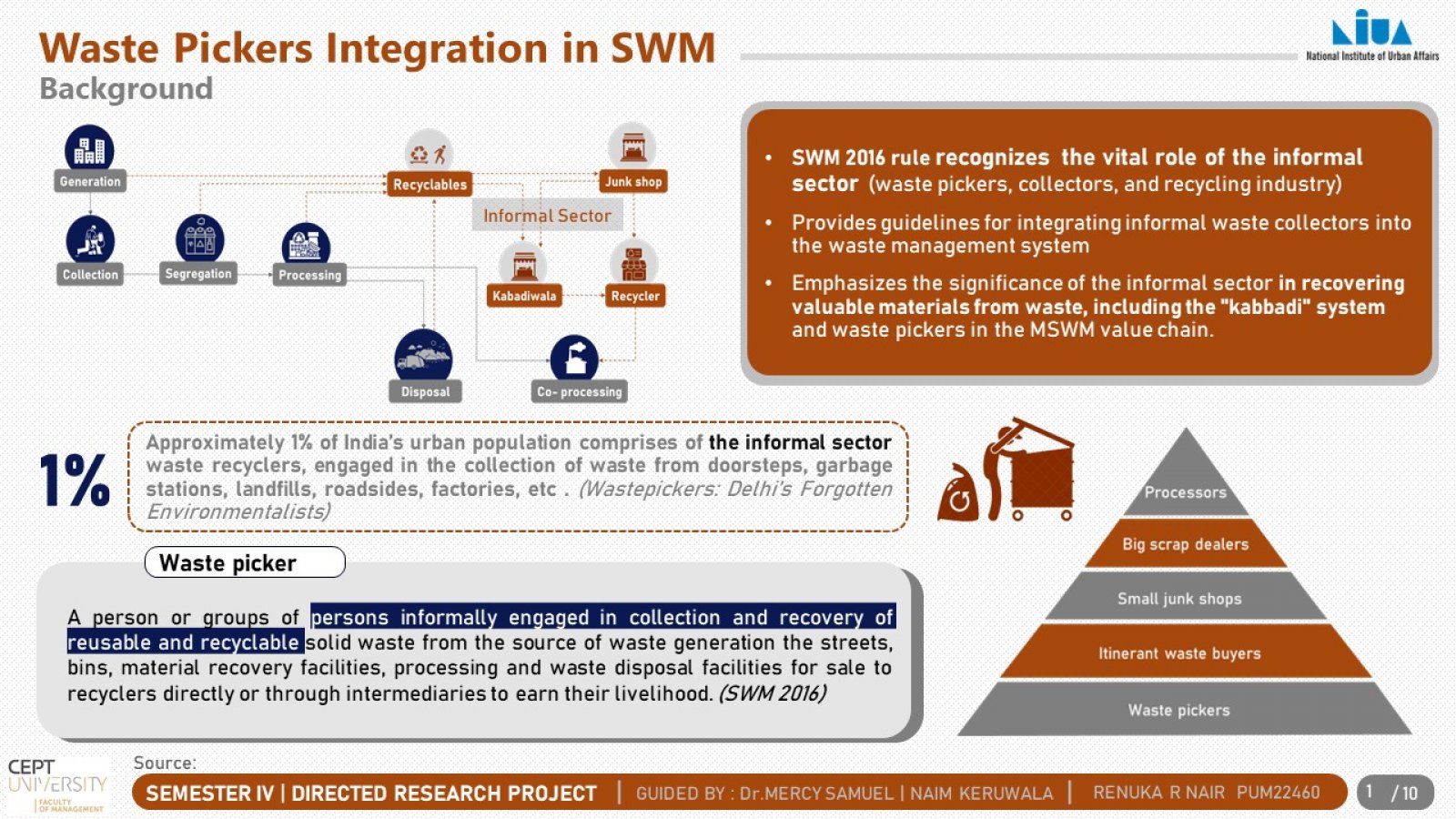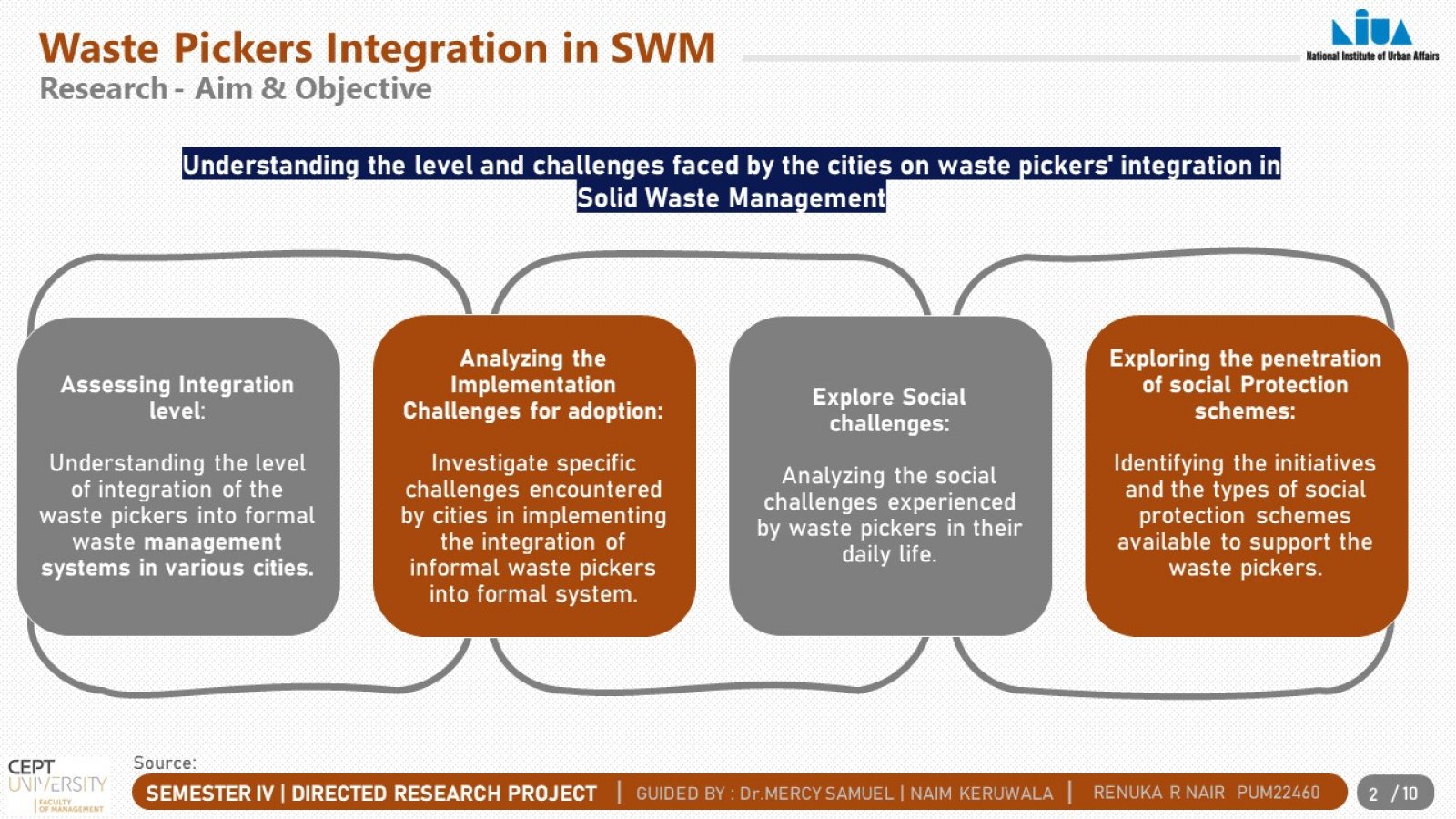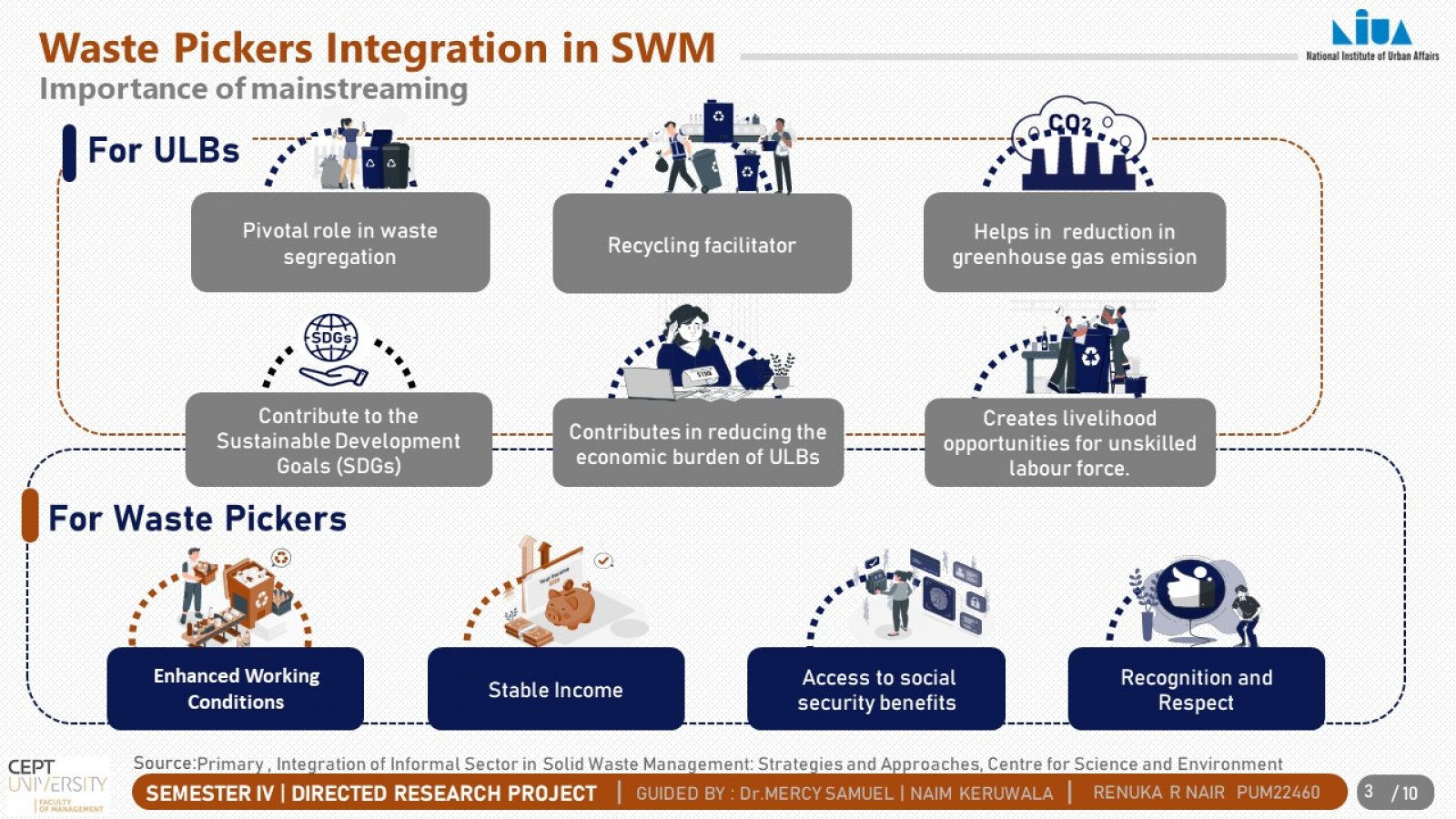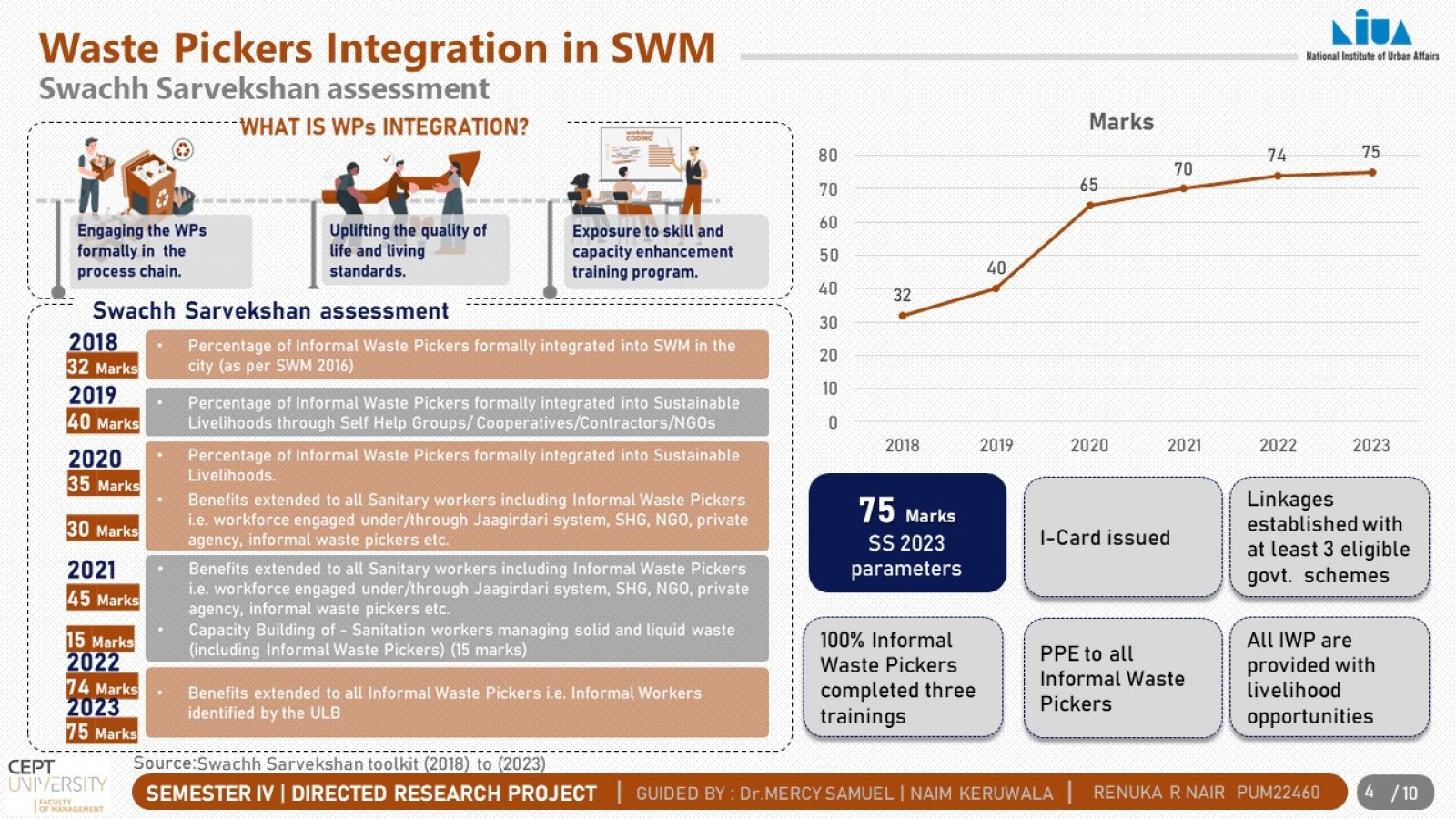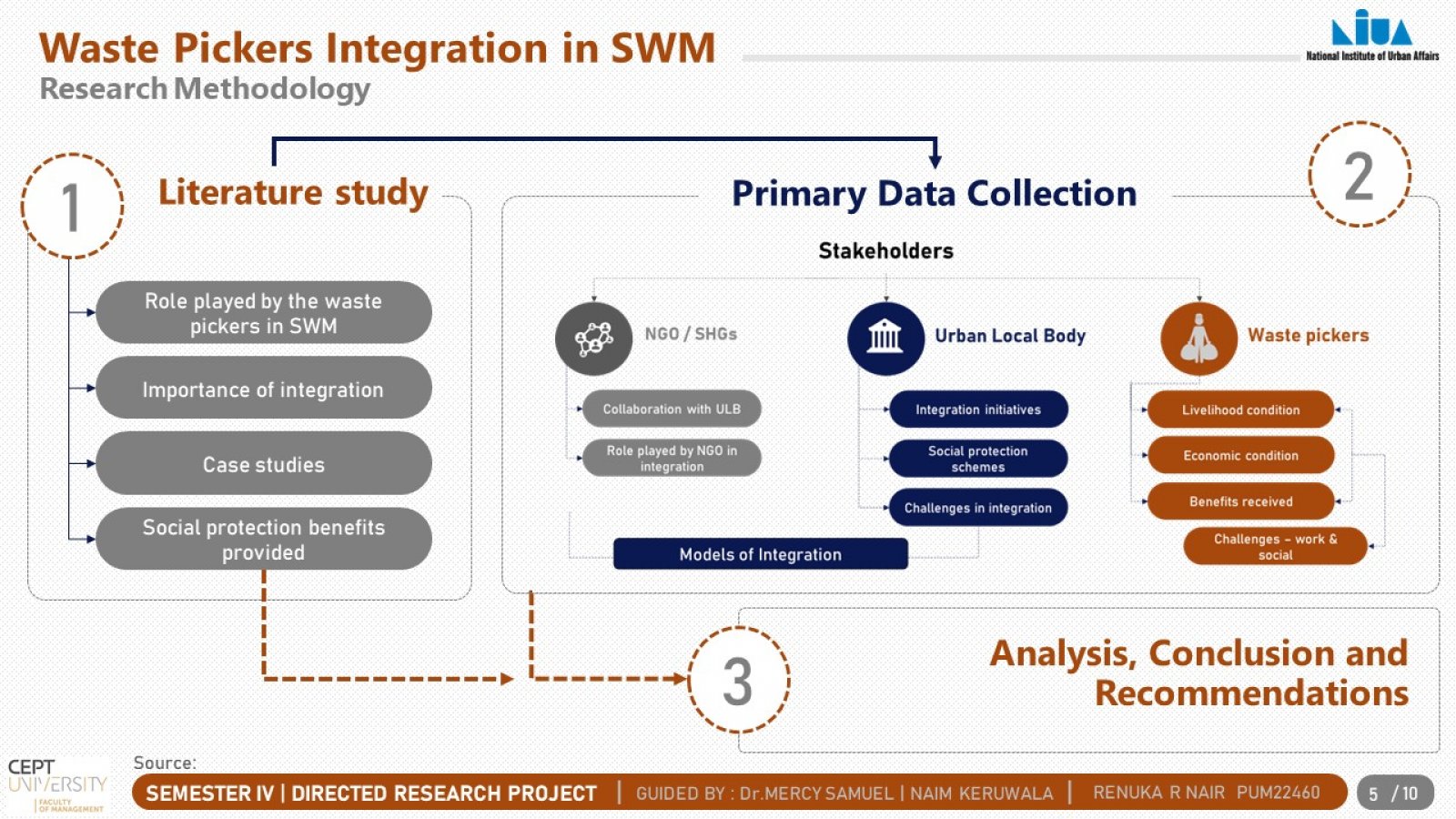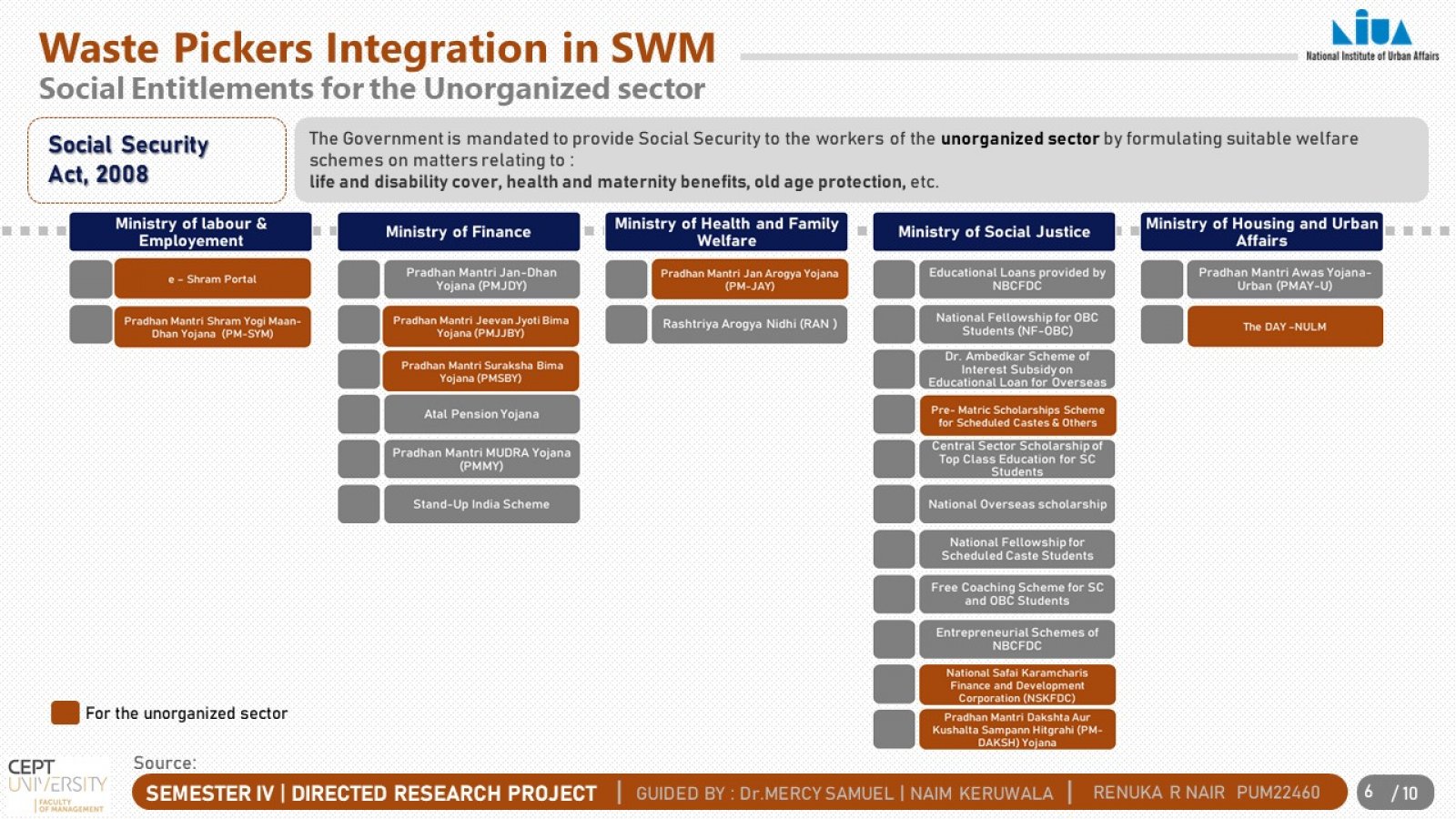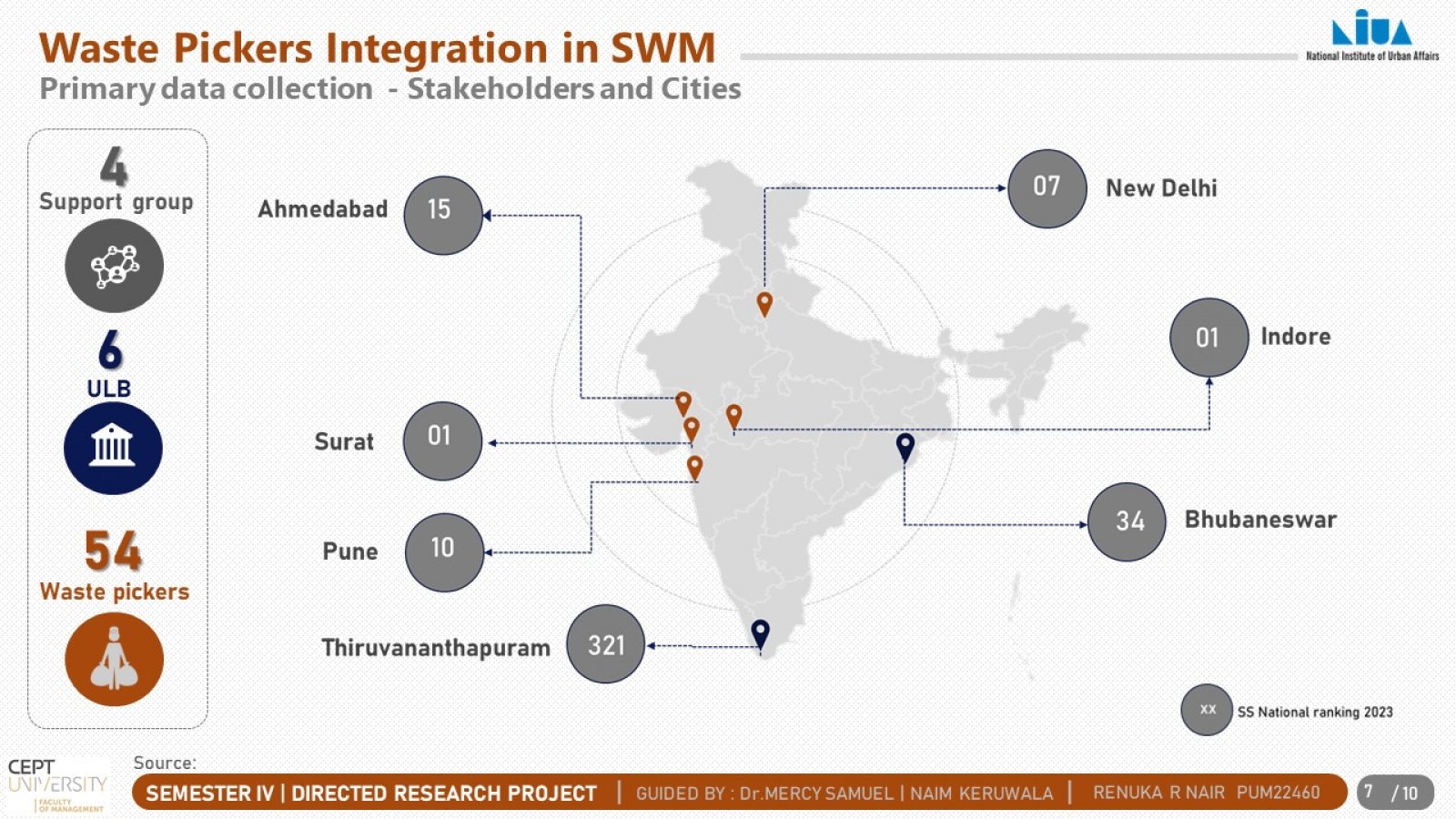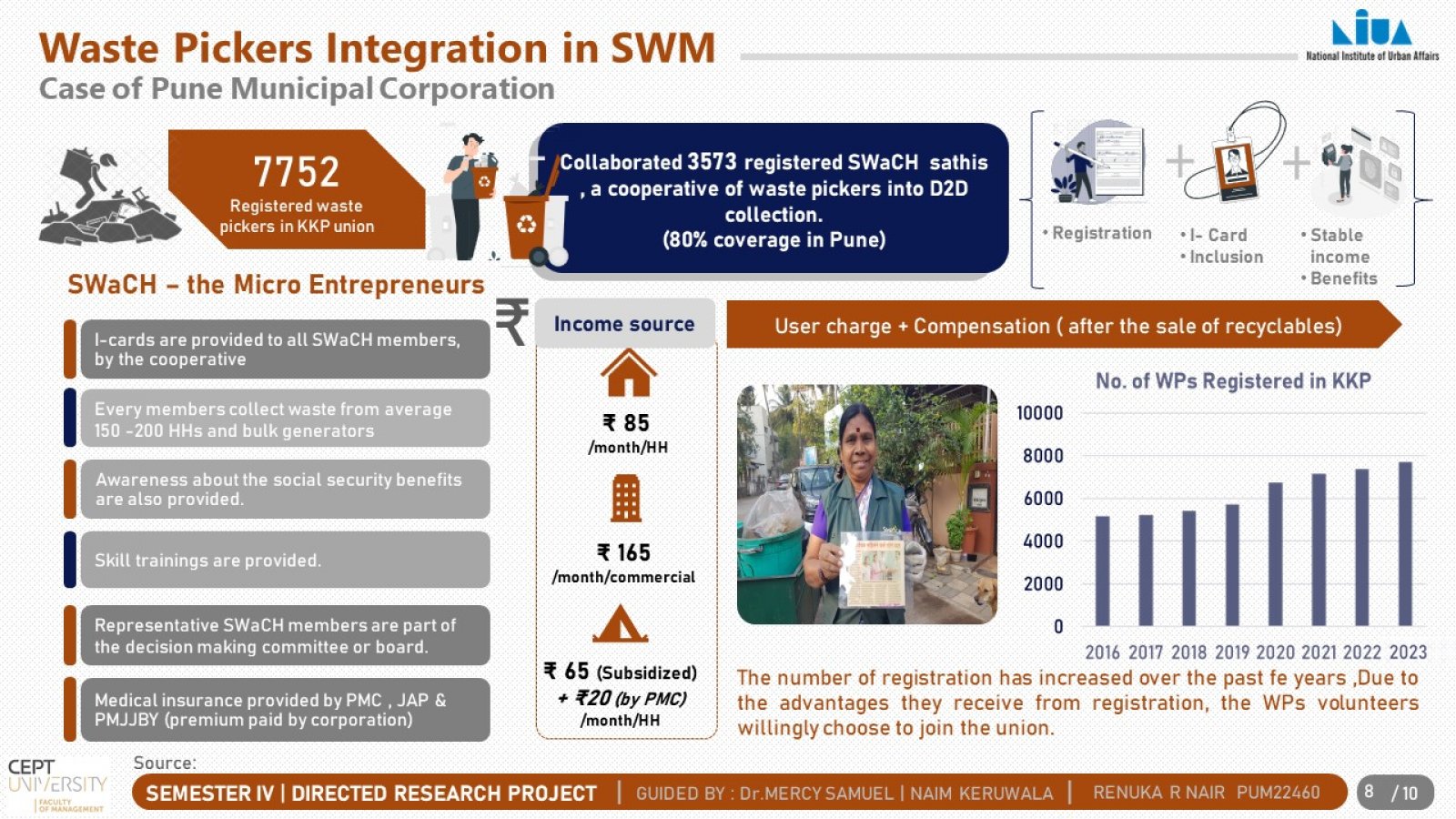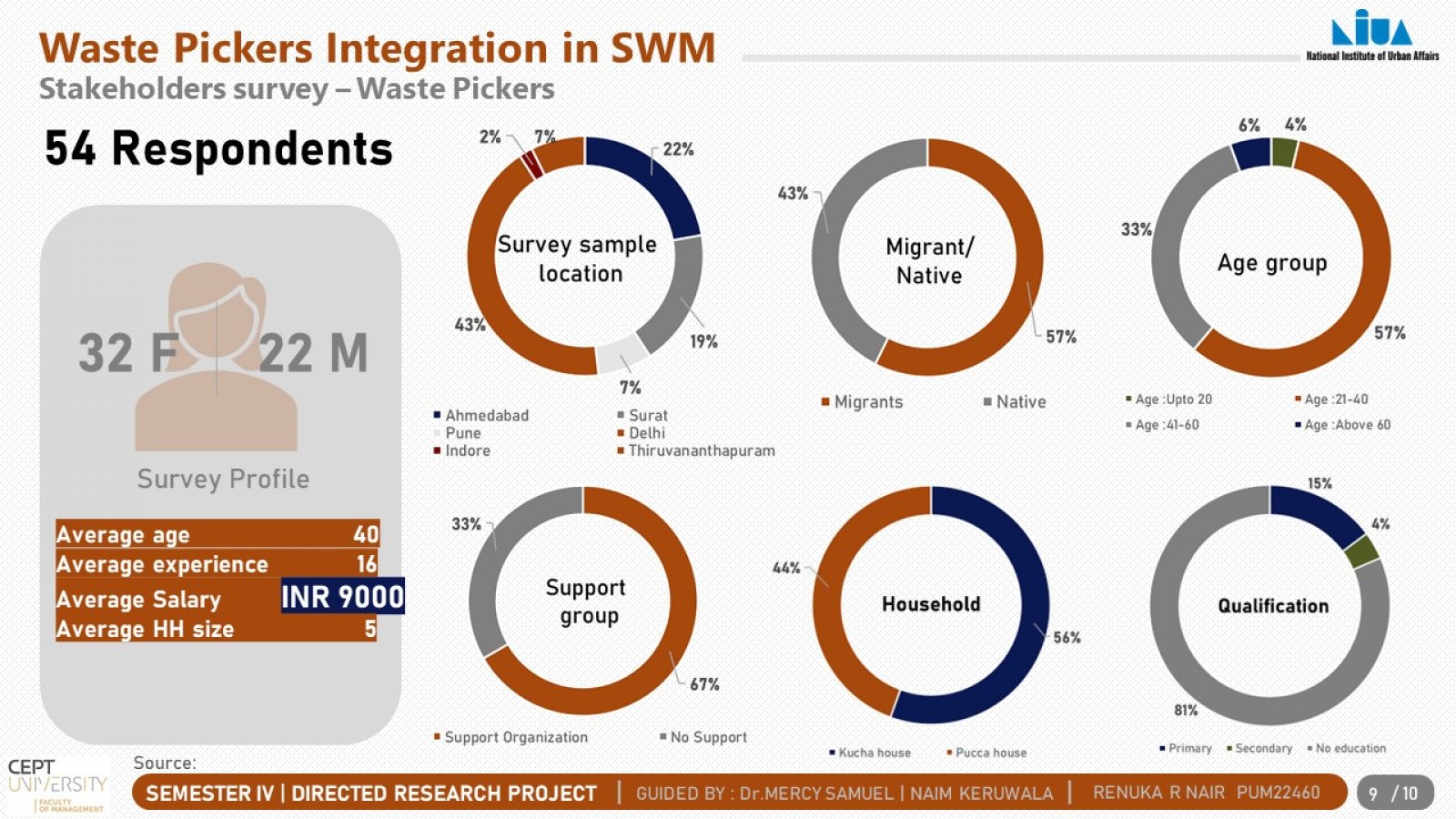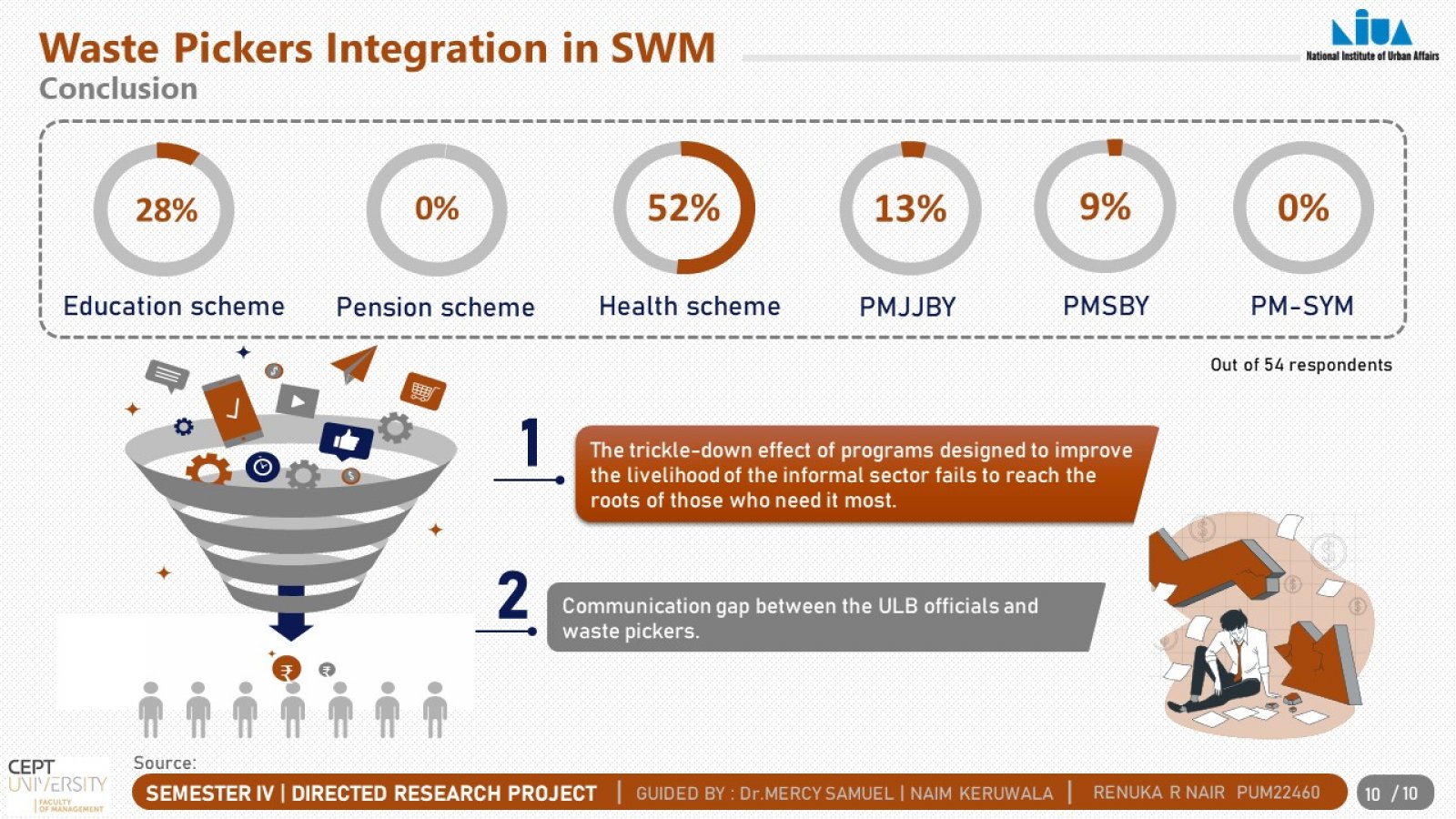Your browser is out-of-date!
For a richer surfing experience on our website, please update your browser. Update my browser now!
For a richer surfing experience on our website, please update your browser. Update my browser now!
The Swachh Bharat Mission, initiated in 2014 by the Government of India, underscores the importance of Integrated Solid Waste Management (ISWM) as a key element in promoting cleanliness and sanitation. ISWM proposes a waste management hierarchy with the aim to reduce the amount of waste being disposed while maximizing resource conservation and resource efficiency . An integral aspect of this approach involves the integration of informal waste pickers into the formal waste management system, recognizing their pivotal role in collecting, segregation, and processing recyclable materials and reducing the burden on landfills. This study focuses on assessing the level of integration initiatives of waste pickers across diverse cities by the urban local bodies(ULBs), analyzing the challenges faced by them in implementing integration, delving into the social and economic dimensions experienced by waste pickers and assessing the penetration level of social protection schemes to the unorganized sector. Through this, the research aims to provide insights into different integration models and the challenges of the beneficiaries and recommend the most effective approach for integration and the social well-being of waste pickers.
